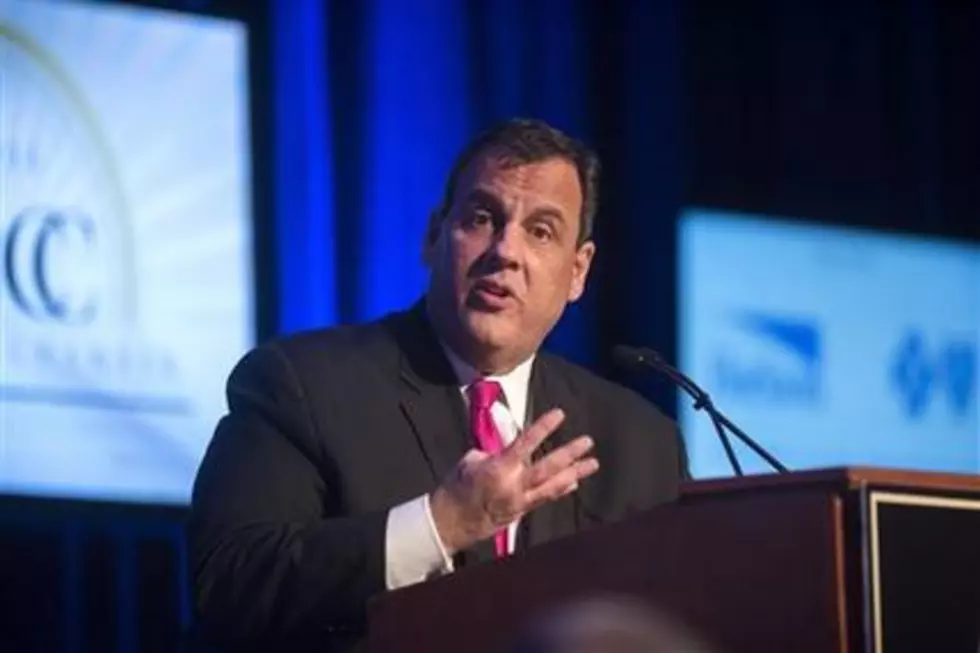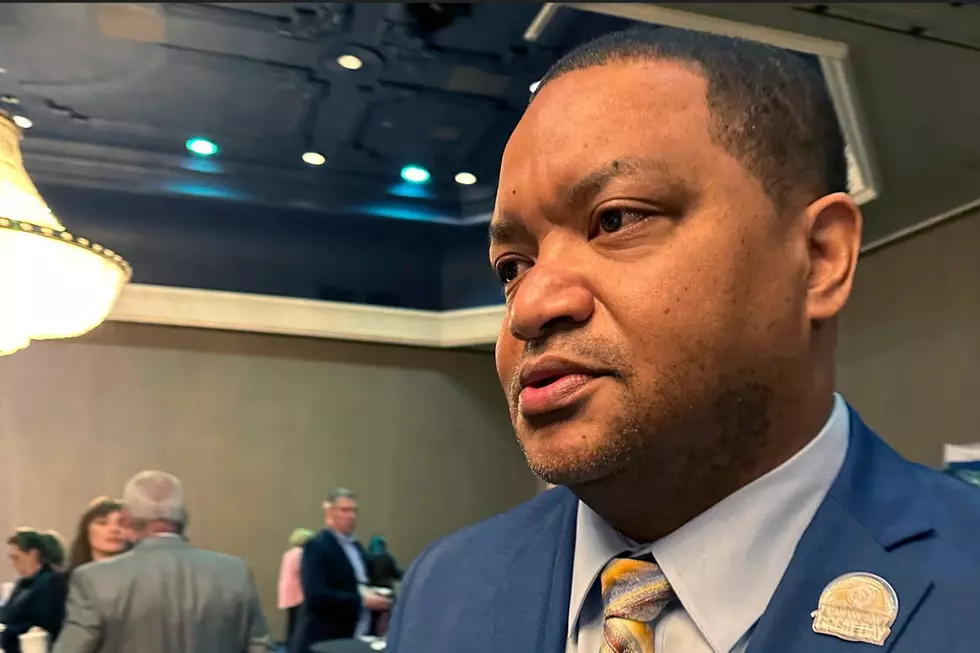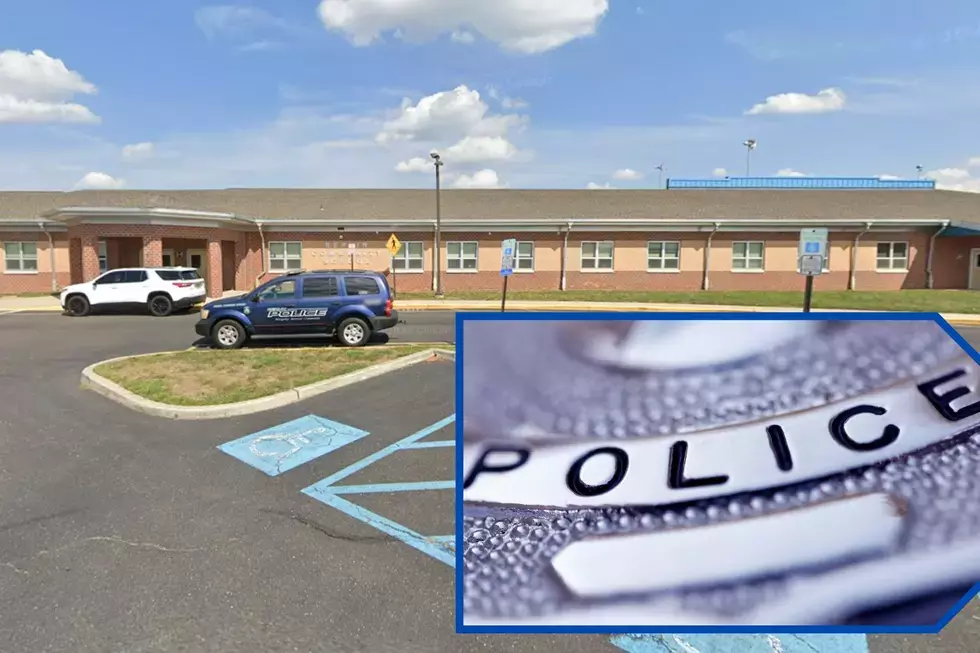
Pension fund ruling – Judge orders NJ to put more money in
TRENTON, N.J. (AP) — A judge has ordered Republican New Jersey Gov. Chris Christie and the state Legislature to put more money into pension funds for retired public workers.
Unions for public workers sued Christie after he announced last year he would not make the full pension payments he had agreed to in a 2011 overhaul that was one of his main accomplishments. The plaintiffs' lawyer says a $1.57 billion payment has been ordered.
Monday's ruling from Superior Court Judge Mary Jacobson is a major blow for Christie and could force big changes in the state budget late in the fiscal year.
The state government will appeal, the governor's office said in a combative statement.
"Once again, liberal judicial activism rears its head with the court trying to replace its own judgment for the judgment of the people who were elected to make these decisions. This budget was passed by the Legislature and signed by the governor with a pension payment," Christie spokesman Michael Drewniak said in a statement.
NJEA President Wendell Steinhauer Tuesday called the decision to appeal Monday's ruling "deeply disappointing" and said it could jeopardize "several months" of quiet dialogue with the Pension and Benefit Reform Commission "trying to come up with a way to provide reliable pensions and benefits that the state can afford and public employees can count on."
Steinhauer also issued a warning on the commission's impending recommendations, saying "there will be many things that NJEA disagrees with, some of them very strongly."
Drewniak also said, "The governor will continue to work on a practical solution to New Jersey's pension and health benefits problems while he appeals this decision to a higher court where we are confident the judgment of New Jersey's elected officials will be vindicated."
New Jersey State AFL-CIO President Charles Wowkanech said Monday his union was "elated" by the judge's decision.
“By refusing to make the required payments, the governor has exacerbated the chronic underfunding of the entire retirement system to the point of crisis," Wowkanech said. If the decision is upheld on appeal, he said, it will give state retirees "the security of knowing that the deferred compensation they negotiated, earned and paid into will in fact be there when they need it.”
Mike Bukosky, a lawyer for the State Troopers Fraternal Association called the ruling a "huge win."
“I think it’s a huge win for fairness. The court has pulled back the curtain and really revealed to everyone that indeed the emperor has no clothes," Bukosky said. "The best thing that he (Christie) could do right now is not appeal this decision and start taking actions and do the hard work that’s necessary.”
Assembly Speaker Vincent Prieto (D-Hudson/Bergen), Assembly Majority Leader Lou Greenwald (D-Camden/Burlington) and Assembly Budget Chairman Gary Schaer (D-Passaic/Bergen) issued a joint statement on the ruling:
"The Legislature sent Gov. Christie a balanced state budget that fully funded the state's obligation, only to see the governor use his line item veto authority to break his promise. This ruling is the predictable and unfortunate result of the governor's fiscally irresponsible decision. We will be reviewing this ruling as we decide how best to proceed."
Christie is preparing a presidential campaign. He says reducing payments last year and this year was the only reasonable way for the state to balance its budgets after tax revenue fell short of expectations last year.
The legal dispute centered on whether the state was contractually bound by the governor's 2011 promise to make up for missed or reduced pension payments over a seven-year period.
The 2011 pension deal was one of Christie's major accomplishments as governor and served as evidence that he could work with Democrats to deal with one of New Jersey's persistent state government financial issues. But it has become a thorn in his side.
Last year, even before the scramble to balance the budget, Christie decried the cost to taxpayers as too high. When revenue came in under projections, he funded most of the gap by cutting contributions. He said he's still making good on the state's current obligation while suspending efforts to catch up from past underpayments.
Last year, he reduced the contribution from a planned $1.7 billion to $700 million. This year, he wants to contribute $681 million rather than the planned $2.25 billion.
At a court hearing over the cuts in January, the state attorney general's office, representing the Christie administration, was in the unusual position of arguing that a law signed by Christie to make the deal more ironclad violated the state's constitution. It argued that a law should not require spending of future legislatures.
Unions say that the law is constitutional and that it's only fair: Public workers had their contributions increased and saw their retirement ages raised, while retirees had their cost-of-living increases suspended.
Since early last year, Christie has been saying that the rising cost of pensions is unsustainable. It's expected to cost the state $5 billion a year eventually.
But it was not until tax receipts last year came in short that he announced he would not make the whole make-up payment in 2014 or 2015.
The judge ruled last year that making the full payments is an obligation, but she found that the state should be allowed to cut back for 2014 because it was an emergency. Making the full payment last year could have meant drastic cuts to other government services.
Christie said the same was true for the budget that kicked in on July 1.
But lawmakers did offer him an alternative budget that would have raised taxes on high earners but fully funded the pension.
At a January hearing, the judge pointed out that the state could have done that. But Assistant Attorney General Jean Reilly said that lawmakers should have known that Christie would not agree to any increases in income taxes.
Copyright 2015 The Associated Press. All rights reserved. This material may not be published, broadcast, rewritten or redistributed.
More From New Jersey 101.5 FM









